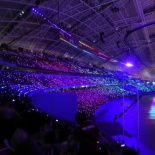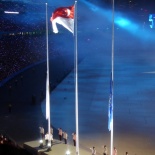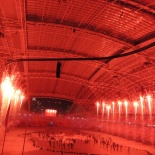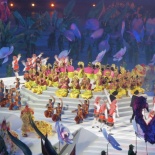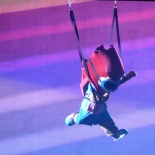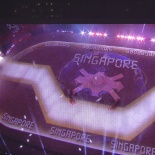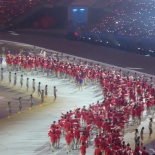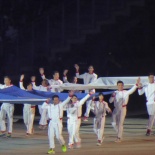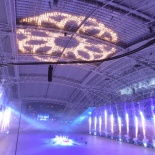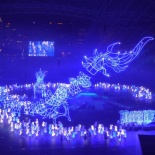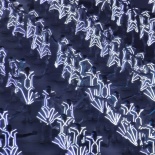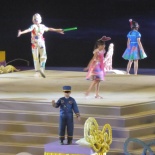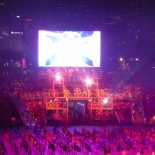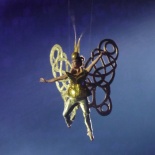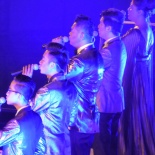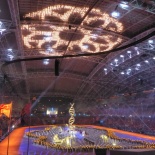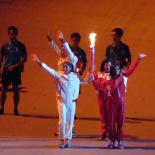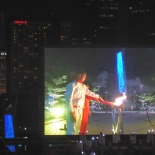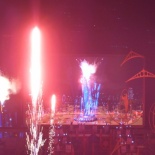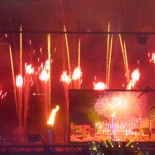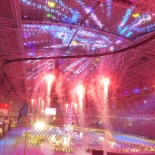The SEA Games is Southeast Asian (SEA) is a multi-sport event between 11 participating countries in SEA themselves organised as a biennial event. The one in 2015 is hosted by the city-state of Singapore and is the fourth time Singapore had hosted the games and the first time since 1993. The one opening on 5th June will see 4370 Athletes participating in 402 events over 36 sports over a period of 12 days and is the 28th SEA Games event since 1959 in held in Bangkok, Thailand.
Entering the event without bags will grant you express access and expedited security screening, which gets you into your seat in under 10minutes. Fillers at the event start include several crowd activities, such as the iconic Kallang wave, brought back into Kallang once again on a nation-wide event since its inception at the old Kallang outdoor stadium. The 2 hours opening ceremony starts with the Games mascot Nila “parachuting” into the stadium after a crowd countdown (known as the big Singapore welcome). Notably too, each spectator is given a battery powered medallion which changes to a colour of choice whenever its IR receiver receives a colour code, allowing synchronised lighting from the spectators themselves.
Ceremony and proceedings follows with the Athlete’s parade, which saw Athletes of all walks of life from the 11 participating nations walking through the stadium with a rich display of flags and patriotism. The parade through the stadium was paved courtesy of 12 ground projection surround projectors, allowing the central field to be illuminated with animations. A speech by the event chairman followed and the Declaration of games open by President Dr Tony Tan. The SEA Games flag and Federation flag brought in by Singapore’s pioneer and current athletes and in Olympics fashion and sportsmanship, the athlete and officials oath taking follows after the raising of the sea games federation flags National anthem.
A series of performances comprising of five acts follows, each with a theme of its own. The first act “DNA” depicts the beginning, root and commonality and lore of the region through five creatures of unique to the Southeast Asian region, particularly the egret (a crane like bird), lion (though actually native to Africa), carp, turtle and dragon. This opening act showcased 750 participants from schools and organisations to perform an arrangement involving light displays using floor projections.
The second and third acts “Imagination” and “Youth expression“ is set to showcase the power of childhood Imagination through seven performers representing the children of Southeast Asia. Their inspiration of imaginative abilities is brought to the audience through suspended “floating” floating trains and toys. This act also involved 150 participants from the Army and children from local primary schools
Chronically, with the children in the second act growing up into youths, the next “Youth Expression” act was led by Singer Benjamin Kheng, singing his rendition of Unbreakable. Together with 840 ground performers and local music artists, the act depicts a showing from a youth perspective, rebellion and challenges faced by young adults in conflict and emerging stronger at the end. There was a sing-off with Benjamin Kheng feat rapper ShiGGa Shay, and Esen Thang playing the Butterfly Girl as she is suspended across the Stadium. The fourth act, Sports and the city saw an odd 1,000 participants coming together on the stadium grounds taking part in the “Big Singapore Welcome”, performing to the song Singapura, recognising and honouring the athletes from the 11 participating countries as well as recognising and paying tribute to former sporting legends from Singapore, coaches and families through a video on the stadium big screens.
The fifth and final act “Singapore and the stadium” starts with a video compilation shown on the Stadium screens, with performers from the previous acts re-appearing. A Bridge of Friendship was brought in, setup for eleven athlete representatives and setting the stage for the arrival of the SEA Games torch relay and cauldron light up. The torch, in Olympic fashion and spirit was brought in through a relay and arriving at the Kallang Basin on Dragon boats. Cauldron was eventually lit by Fandi Ahmad and his son Irfan. The main fireworks event at 10pm follows thereafter, with a combination of indoor pyrotechnics complimenting the main fireworks show outside. It’s a pity with painting one of the major flaws of a semi-sheltered stadium design as opposed to the old national stadium, you won’t be able to actually, well at least the organisers made up for it by looping a series of simulated fireworks animations on the roof liner for kicks.
It when the stadium is packed to the brim where you can really appreciate the active air circulation system, which forces cool air under the concrete parapet behind every spectator seat keeping the stadium cooled and well ventilated at capacity. Overall, the event is pretty well managed and organised, though crowd control could be better with multiple entry points into the stadium. Through the Youth Olympics and experiences from the London and Beijing Olympics, Singapore had indeed came a long way into organising wold-class sporting events like this one.
May the games begin!
You can view more photos of the event here.

